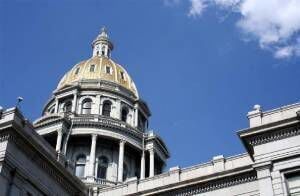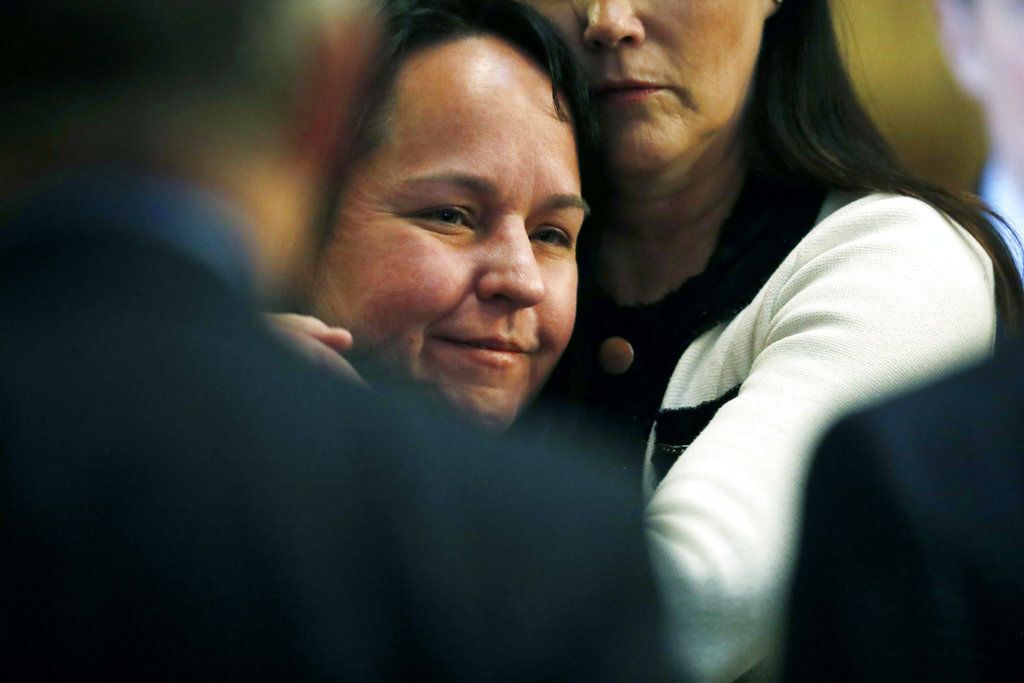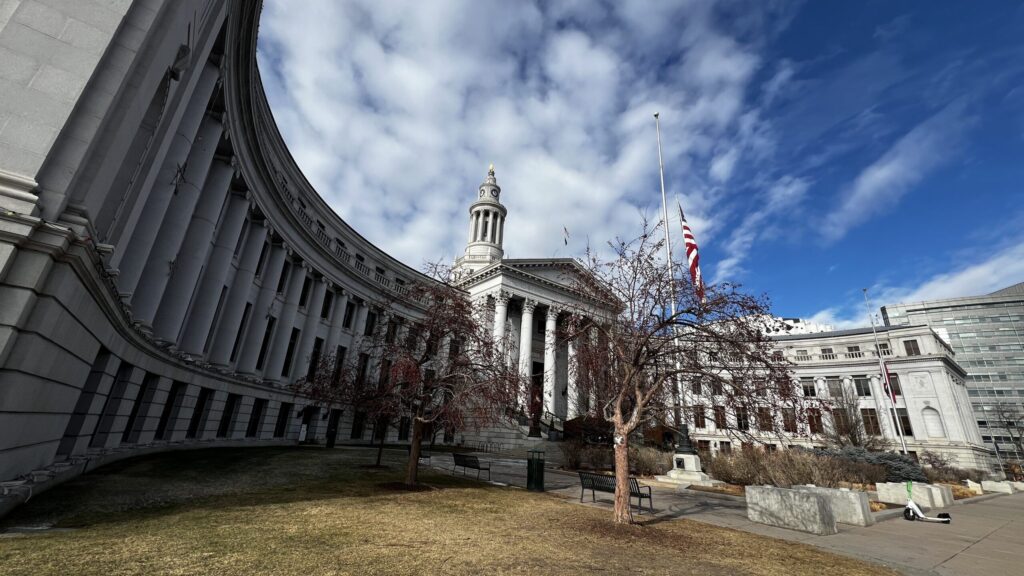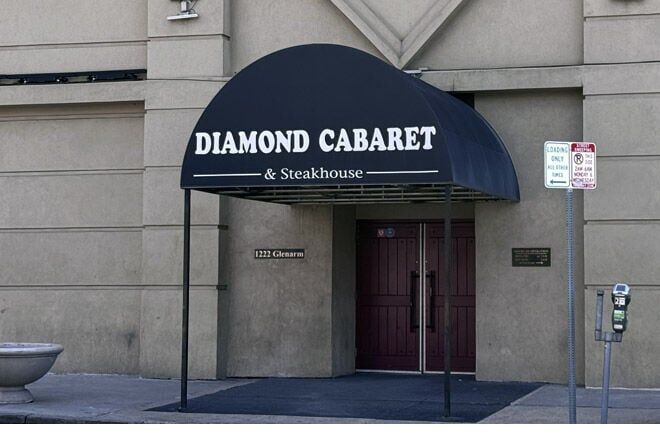Conservatives target transportation funding in TABOR lawsuit

Colorado’s leading conservatives, along with a free-market group, are challenging last year’s law that created hundreds of millions of dollars in new fees to fund the state’s transportation system and other programs.
In a lawsuit this week, Sen. Jerry Sonnenberg, R-Sterling, and residents Michael Fields and Richard Orman, joined Americans for Prosperity in asking Denver District Court to throw out a 2021 law, arguing it imposes five layers of new taxes by calling them “fees.”
The plaintiffs – Sonnenberg, Fields and Orman say they are suing as taxpayers and voters – argue the law is intentionally evading the Taxpayer Bill of Rights and is unconstitutional. Fields is president of Advance Colorado Institute, a conservative think tank.
They say it violates the Colorado Constitution’s single-subject requirement; that legislators failed to adjust TABOR revenue caps as required; and, it violates Proposition 117, a 2020 ballot measure that requires any new fees for enterprises that generate more than $100 million in revenue in the first five years to be approved by voters.
Plaintiffs say that Proposition 117 also requires that, if enterprises are created at the same time, as in this case, all revenues must be aggregated towards the $100 million voter-approval cap, and because the legislature did not call for a public vote, the law is invalid.
Senate Bill 21-260, which lawmakers approved last year, created four separate new state enterprises and modified another to pay for projects, each in theory raising less than $100 million in its first five years to get around Proposition 117.
The law also seeks to advance Gov. Jared Polis and his allies’ climate and environmental justice goals, including creating a new Environmental Justice and Equity Branch within the state’s transportation agency.
The Governor’s Office’s refused to comment on the lawsuit.
In a statement, Conor Cahill, a spokesperson for Gov. Jared Polis, said, “We’re not going to comment on pending litigation related to this bipartisan transportation bill that is going to finally fix our damn roads but obviously we all agree that there should be federal gas tax relief and the Governor has also proposed state gas fee relief now.”
Narrowly approved by voters in 1992, the Taxpayer Bill of Rights requires that the public must approve any tax increase. At its core, TABOR seeks to limit the growth of government to population increases, plus whatever the annual Denver-Boulder Consumer Price Index, a measure of inflation, has been for the previous year. What that means in practical terms is the state government can only grow by inflation and population, basically covering expenses for big-ticket items, such as schools, Medicaid, corrections and higher education, year after year with modest increases.
Supporters describe TABOR as voters’ response to out-of-control tax-and-spend policies emanating from the statehouse. Critics, meanwhile, argue that it has stifled the state’s ability to fund its core obligations, such as funding for education, healthcare and public safety.
Ever since TABOR was enacted, supporters say progressives have tried to evade, repeal or have the measure declared unconstitutional, arguing, for example, that it “denies Colorado a republican form of government” by impeding legislators’ authority to make spending decisions without asking the public.
Critics of SB21-260 say state policymakers have gone around TABOR by creating, in this case, state-owned enterprises that can levy fees without a public vote. They insist that because fee-funded enterprise revenue doesn’t count towards the TABOR spending limits, the state has increasingly adopted this approach, effectively passing taxes in disguise.
“This legislature for years has been positively allergic to coming to the voters with anything. They get hives at the very idea that the constitution might control their discretionary power,” said Dan Burrows, legal director for Advance Colorado and attorney for Sonnenberg, Fields and Orman. “It is frankly anti-democratic and anti-constitutional and shameful that people who have taken an oath to comply with the constitution and comply with the law do everything they can to avoid complying.”
Burrows says 22 new enterprises have been formed at the state level since TABOR, adding that enterprise revenues have gone from $742 million in 1992 to $27.8 billion in 2021.
“Forty-three percent of the state’s budget is now controlled by unelected bureaucrats,” Burrows said.
State budget analysts project SB 21-260’s new enterprises will collect at least $173 million in the first two fiscal years alone.
The four new enterprises created by SB 21-260 are:
? The Community Access Enterprise, which imposes a retail delivery fee to fund “widespread adoption of electric vehicles and electric alternatives to motor vehicles”
? The Clean Fleet Enterprise, which imposes a fee on retail delivery and rides provided by ride-share providers, such as like Uber and Lyft, to “incentivize and support the use of electric motor vehicles and other technologies in private and government vehicle fleets”
? The Clean Transit Enterprise, which imposes a clean transit retail delivery fee to “support electrification of public transit”
? The Nonattainment Area Air Pollution Mitigation Enterprise, which imposes an “air pollution mitigation fee” on retail deliveries and TNC rides
The fifth fee comes through an amendment to the existing Statewide Bridge Enterprise to impose a bridge and tunnel impact fee on diesel fuel, as well as retail delivery fee.
Sonnenberg says the Democratic majority in the legislature isn’t done with he describes as semantic chicanery.
“They’re even coming up with new names that aren’t in statutes that aren’t fees, that aren’t taxes. There’s talk now of calling them ‘dues,'” Sonnenberg said.
Part of the problem is there is no clear statutory definition of what is a tax and what is a fee, the Republican legislator said, adding he supports the idea of legislatively defining them.
In pushing for the bill, House Speaker Alec Garnett, D-Denver, argued last year the new revenue streams are needed because the state is falling behind on transportation funding, and Colorado’s aging system is stifling growth and failing to meet diverse state needs.
Rep. Matt Gray, D-Broomfield, the law’s co-sponsor, also said what’s been tried before hasn’t worked, whether it’s a bonding-only proposal or a sales tax proposal.
“They’re not asking us to kick the can down the road, they’re asking us to solve the problem,” he said.
Burrows, however, doesn’t agree with an ends-justifies-the-means policy he says the Democrat majority has been following.
“It’s the problem we’ve been dealing with with the Colorado legislature for nigh-on 30 years, ever since TABOR was passed,” said Burrows.














